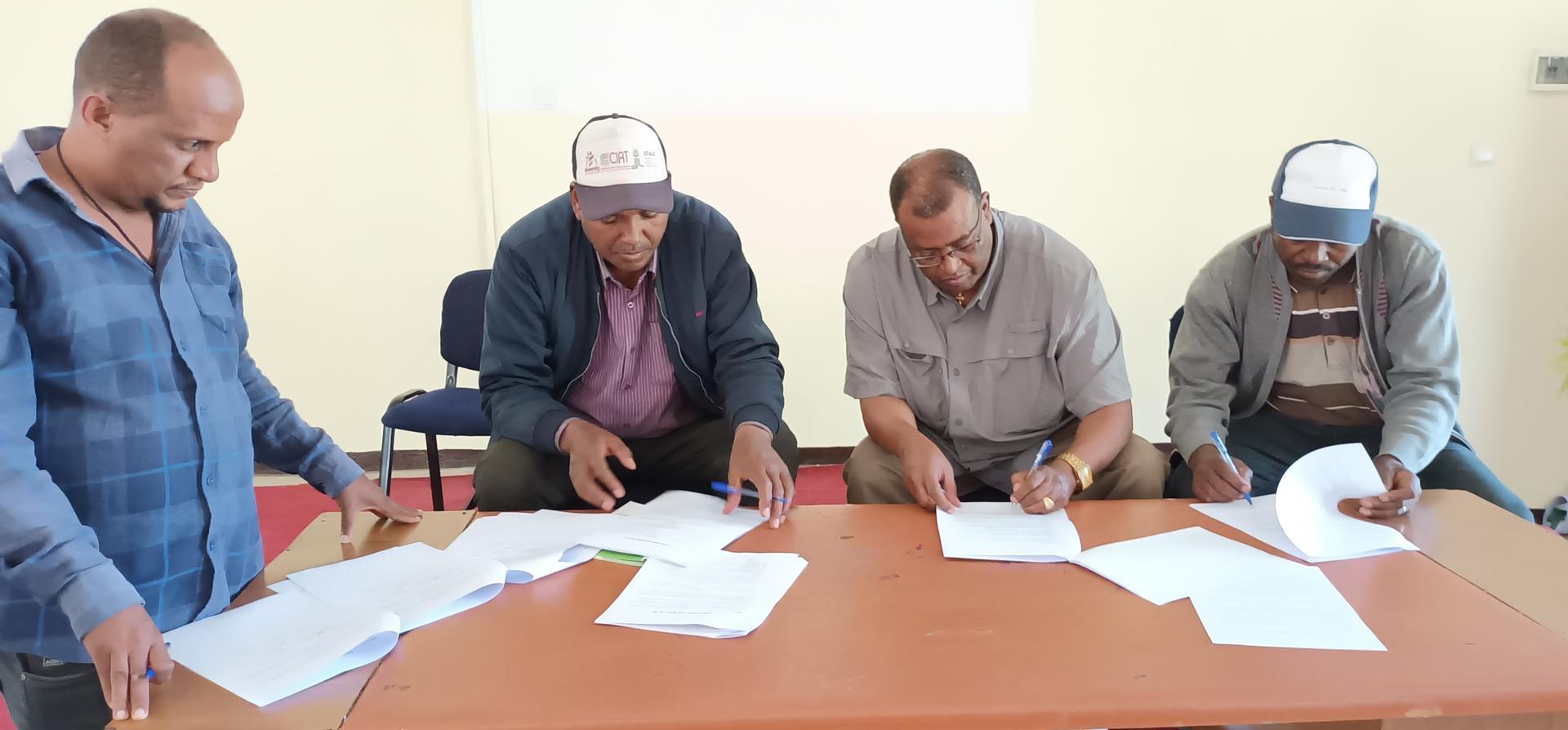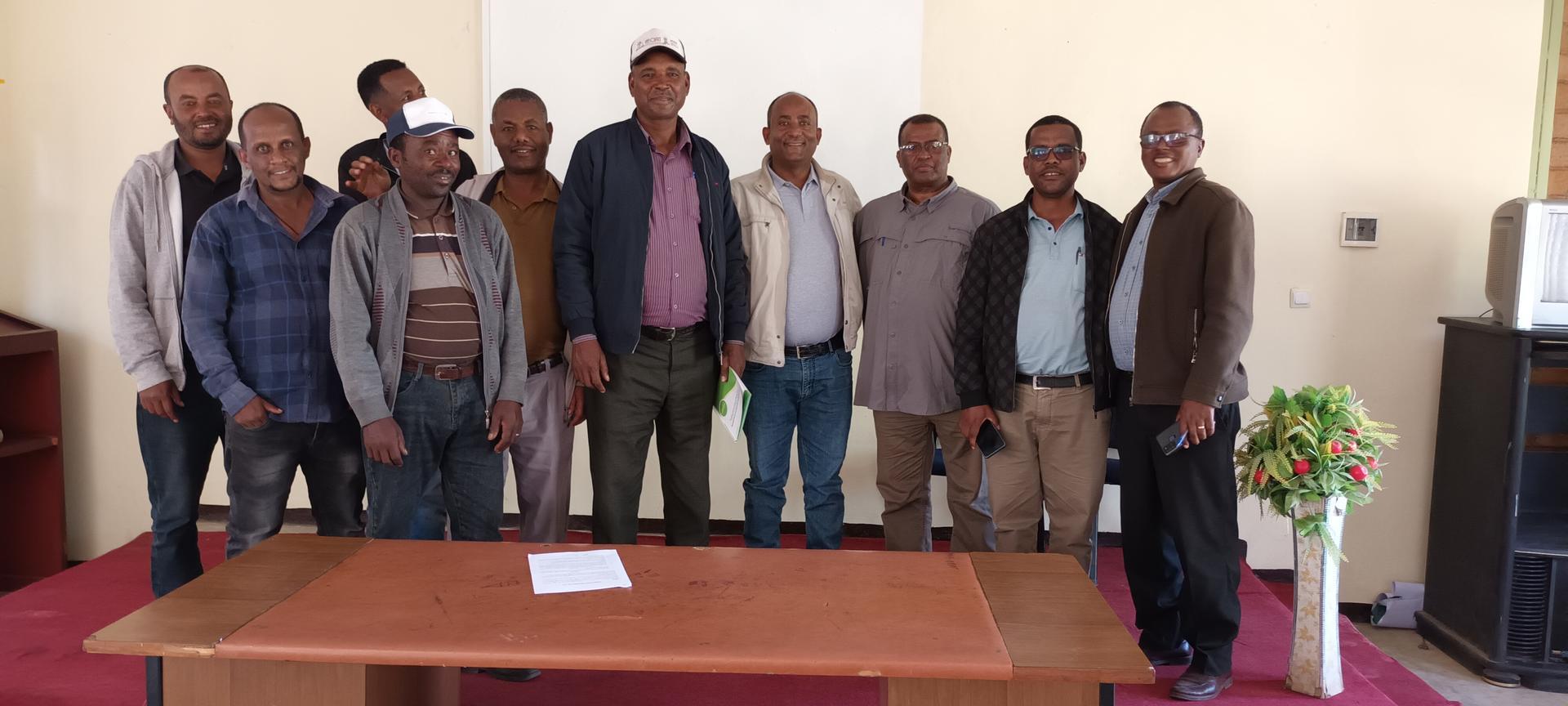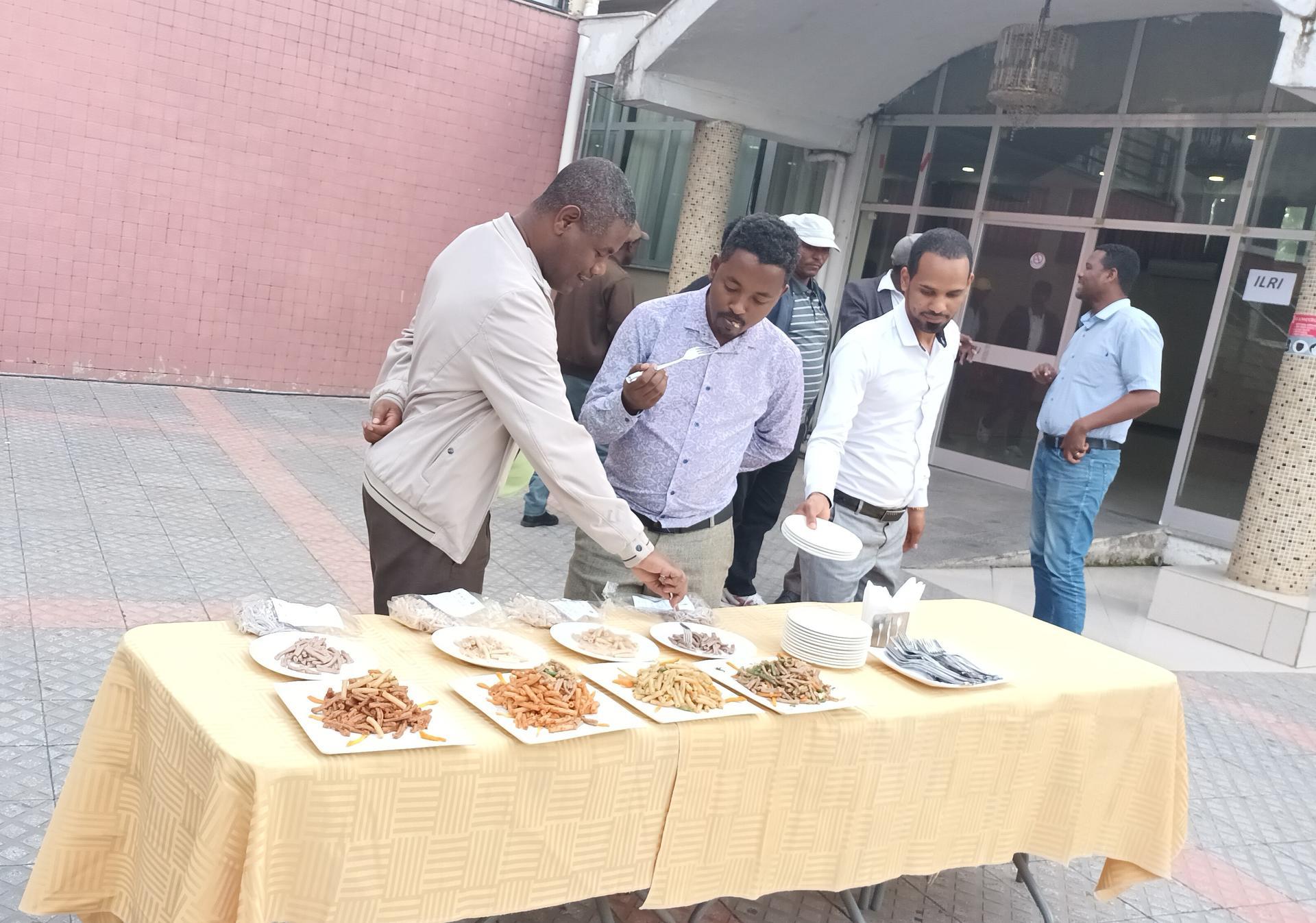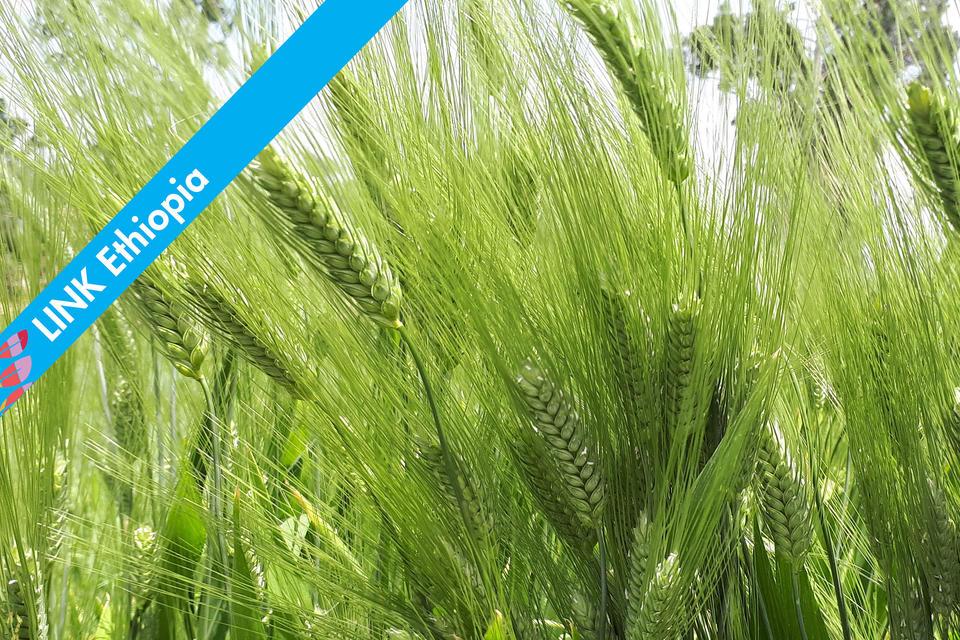From the Field Landmark Agreement Paves the Way for Sustainable Durum Wheat Production and Livelihood Improvement in Ethiopia

In a significant development for the agricultural sector, the durum wheat farmers in the region have achieved a groundbreaking agreement with three prominent food processing companies, thanks to the intervention of the Alliance of Bioversity International and CIAT and Oromia Seed Enterprise (OSE) through a GIZ fund.
By: Dejene K. Mengistu1, Tadesse Teshome2 and Yosef G. Kidane1
1Alliance of Bioversity International and CIAT; 2Oromia Seed Enterprise, Addis Ababa, Ethiopia
The agreement:
The collaboration between the two farmers cooperatives - Chefe Donsa Community Seed Bank and Habru Seftu Farmers’ Cooperative – and three food processing companies - Alvima PLC, Astuko PLC, and Ada'a Food Complex – marks a significant step towards the establishment of efficient and effective durum wheat value chain in Ethiopia. The agreement aims to establish a dedicated marketing of durum wheat between the producers and processors which paves a strong foundation for durum wheat contract farming and ensures better payment for durum wheat farmers through premium pay for quality produce. The contracting companies have access to quality durum wheat with minimized market competition from broker traders and hence improve the quality of their pasta products as well as their products’ selling prices. This agreement mutually benefits both parties and encourages and sustains durum wheat production in the vicinity. This agreement could be considered the final output of the durum wheat value chain development effort under the GIZ-funded project on upscaling crowdsourcing winner varieties of durum wheat in Gimbichu District of East Shoa zone, Ethiopia.
Promoting Fair Compensation and Sustainable Agriculture:
Under the newly formed agreement, durum wheat farmers will receive premium prices for both first and second-grade produce. The cooperative effort ensures that farmers are adequately compensated for their hard work and high-quality crops. The agreement set three grades of durum wheat based on seven quality parameters and a premium price of 8% for first grade wheat and 5% premium price for second grade was agreed. This agreement not only incentivize farmers to maintain exceptional quality but also encourage sustainable agricultural practices in the long run. According to Dr. Dejene, a scientist from the Alliance, this premium pricing system serves as a crucial motivating factor for farmers to continue producing high-quality durum wheat varieties including the local varieties and adopt sustainable agricultural practices.

Dejene K. Mengistu
Scientist
Agreement signatories and other relevant stakeholders (from left to right: Chefe Donsa office of agriculture, Astuko foods plc., Alvima plc, Habru Seftu cooperative, Ada’a foods, Chefe Donsa Community Seed Bank, ABC, Ada’a foods, Erer union and OSE). Photo by: Talila Garamu
Upscaling the Value Chain:
The collaboration between durum wheat farmers and food processing companies is part of the GIZ Upscaling of Winner Varieties Value Chain initiative. This program aims to enhance market opportunities for farmers and boost their overall income levels. By establishing strong ties between farmers and food processors, the value chain is streamlined and optimized, eliminating middlemen, and ensuring direct market access for the farmers. This streamlined value chain not only benefits the farmers by providing them with better market opportunities but also enables the food processing companies to secure a consistent supply of high-quality wheat.

Demonstration of wheat in the food on the table – value chain development process. Photo: Hailu Terefe
The Role of Contract Farming:
Ethiopia introduced a groundbreaking legal framework to support the development of Agricultural Production through contract farming and contract farming regulation is defined in Contract Proclamation No. 1289/2023. With this legislation in place, the current agreement between the parties plays a crucial role in entering contract farming, which offers stability and sustainability into the future, between farmers' groups and the food processing companies. By entering contracts, each party can clarify their roles and responsibilities, fostering transparency and accountability. Farmers can cultivate their crops with the assurance of a reliable market, while food processing companies can secure a consistent supply of high-quality wheat. Dr. Yosef, a scientist in the Alliance, stressed the importance of contract farming for better production and attaining a quality grain for pasta. Contract farming not only promotes the economic growth of all parties involved but also encourages long-term planning, diversification, and innovation and contributes to Ethiopia’s wheat import substitution strategic plan.
Community Empowerment and Collaboration sparks bright future for sustainable agriculture:
The involvement of the Chefe Donsa Community Seed Bank and Habru Seftu Farmers' Cooperatives signifies the importance of community empowerment and their potential contributions to agroindustry. The signing of this remarkable agreement between durum wheat farmers and food processing companies heralds a new era of sustainable agriculture. Such agreements encourage collaborative works between research, farmers, and industries from which farmers can leverage collective knowledge, resources, and expertise to negotiate fair prices and develop sustainable farming practices. The establishment of a fair compensation plan – premium price for quality products – and contract farming through such partnership encourages the adoption of best practices, environmental stewardship, and economic growth. This collaborative approach could ensure a more equitable distribution of resources and benefits within the agricultural sector, ultimately improving the livelihoods of participant communities and the economic welfare of the food processing sectors and the country in general. This mutual commitment to quality and sustainability sets a positive precedent, inspiring other agricultural sectors to emulate these practices and work towards a more resilient and prosperous future.
Conclusion:
The agreement between durum wheat farmers and food processing companies presents a promising opportunity for sustainable agricultural development. With premium prices, contract farming, and community collaboration at the forefront, this partnership sets the stage for a transformative shift in the durum wheat value chain. The success of this initiative becomes even more significant as it aligns with the value chain development program of the Alliance of Bioversity International and CIAT through the GIZ-supported value chain development for upscaled crowdsourcing winner durum wheat varieties, inclusive and sustainable value chain development by the Italian Development Cooperation (AICS) and the Ministry of Agriculture. The involvement of Oromia Seed Enterprise (OSE) – a giant seed company in Ethiopia – supports this agreement by multiplying and supplying farmers with selected durum wheat varieties seeds for production. This agreement brings us one step closer to the realization of proper utilization of the diverse Ethiopian farmers' durum wheat varieties for the production of 100% Ethiopian pasta, which might provide a unique flavor for pasta consumers.

